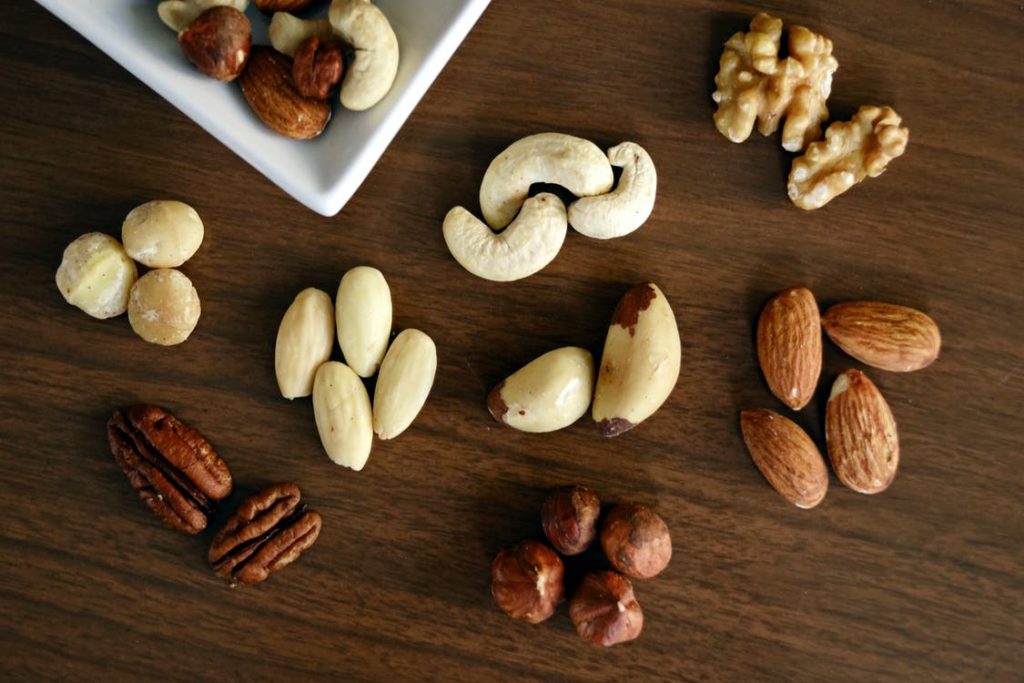Jumpstart to a healthy change in life
- Updated: December 9, 2020

This post covers the main steps of I have taken toward reaching my goal of better health through healthier eating.
I started by thinking about what I am eating now and what changes I wanted to make. After that, I thought about the eating changes that will help me make healthier food choices.
I must clarify that I am not a healthcare professional nor a food sciences expert. Nor do I claim to be one of those. It is just that I do a lot of research and read a lot of books on health and food. And whenever the opportunity arises, I will ask and get information from doctors and other healthcare professionals. In other words, when they talk about nutrition and illness or diseases, I try to remember everything they say.
From there, I will just choose and apply what makes sense to me.
I am not interested in complicated stuff and fads. In addition to that, calorie counts are also out but calorie estimates are in. I do not want to count every single calorie but want an estimate of the total consumption.
1. Moving away from animal-based protein to plant-based protein
Meat have never been a large part of my diet. But it is still better to reduce its consumption.
One of the first steps taken is to substitute animal protein with protein from nuts, seeds, and legumes.
This meant that almonds, flaxseeds, sunflower seeds, pumpkin seeds, peas, soybeans, and black beans are among the new food sources. These pack plenty of nutrients. Even though nuts have plenty of fat, they are mainly unsaturated.
I will keep the serving sizes or portions small as nuts are high in calories.
2. Moving away from refined carbohydrates to unrefined carbohydrates
Refined or simple carbohydrates include processed sugars and grains that had the natural fibres and nutrients stripped out. These include white bread, pizza dough, pasta, pastries, white flour, white rice, sweet desserts, and many breakfast cereals.
Unrefined or complex carbohydrates that are minimally processed will contain the fibres found naturally in the food. These include peas, beans, whole grains, and vegetables and are rich in vitamins, minerals, and fibres.
The digestive system will convert both simple and complex carbohydrates to glucose (blood sugar) in the body. The cells of the body and in the brain will then use the glucose. If the glucose is unused, the body will then store it in the liver and muscles as glycogen for later use. If the glucose exceeds the storage limit in the liver, it will be converted into fat.
Complex carbohydrate foods provide vitamins, minerals, and fibres that are important to the health of an individual. Most of the carbohydrates should come from complex carbohydrates (starches) and naturally occurring sugars, rather than processed or refined carbohydrates.
Refined sugars are often called “empty calories” because they have little to no nutritional value. This means they add extra calories to my diet with no nutritional benefit.
3. Cutting down on consumption of saturated fat
There are 2 main types of fat: saturated and unsaturated. Too much saturated fat is bad for health.
We need fat in the diet, but it is important to pay attention to the amount and type of fat eaten.
Foods containing saturated fat are fatty cuts of meat, sausages, butter, hard cheese, cream, cakes, etc.
Foods containing unsaturated fats are vegetable oils, oily fish, and avocados.
I try to cut down on my saturated fat intake and choose foods containing unsaturated fats.
Fats should only be eaten in small amounts as all types of fat are high in energy.
Therefore, it is healthier to use a small amount of vegetable or olive oil in cooking.
4. Reducing intake of beverages with added sugar
I have cut down intake of beverages from restaurants, cafes, food courts or hawker centres. This includes coffee, tea and other shop made drinks. Soft drinks (Soda or pop) are an absolute no-no.
The objective is to have drinks with no added sugar. This is because it is much healthier to avoid sugary drinks.
I drink coffee at home with fresh milk only, and drink plenty of green tea. Green tea is one of the healthiest beverages around.
5. Focus on calorie deficit
I have omitted all high calorie food and beverages from my food regiment. Adios (at this moment) to nasi lemak, curry noodles, teh tarik, char koay teow, etc, etc… All these wonderful high calorie, high carbohydrate, and high fat foods must be set aside for now.
I have also started been moving around physically a lot more. Daily walks in the park of at least 30 minutes is part of the regiment. A total of 6,000 steps have been set per day. I have a yoga session for those days where I have given the daily walk a miss,
By reducing the fat and refined carbohydrate intake, I will have reduced the calories.
Body burns on excess fat when there is calory deficit.
BONUS
5 OTHER ACTIONS I AM ALREADY DOING
1. Eating lots of fruits and vegetables
I like fruits and vegetables and I have been eating lots of them all through the years.
Green leafy vegetables will be the order of the day.
2. Drinking enough water
Water is important for health. This is because drinking enough water can help us maintain healthy brain functions and puts us in a positive mood. That is why I drink water throughout the day.
3. Choosing real and minimally processed foods over highly processed foods
Highly processed foods are foods that have undergone many changes from their original food source and have many added ingredients. During processing, often important nutrients such as vitamins, minerals and fibre are removed while salt and sugar are added.
Examples of processed foods include fast foods, fries/chips, cookies, frozen pizzas, processed meats, white rice, and white bread.
Real foods are usually unmodified single-ingredient foods and lack chemical additives.
Examples of real foods include fruits (apples, bananas, oranges, etc.), carrots, green leafy vegetables, Herbs, milk, whole grains (brown rice), oats, whole eggs.
4. Eating less salt
Eating too much salt is not good for health.
Salt intake may still be too high even without adding salt to food. Most of the salt eaten is already in the food ingredients bought.
I study the food labels to help me cut down on salt.
5. Drinking less alcohol
I do not drink much alcohol, at the most, a bottle or two of beer a month.
This is easy for me to eliminate from my regiment. I just stop, period.
END WORDS
I have started cooking for myself and have been taking soups, oatmeal and dishes made with quinoa.
To this end, I have been looking up for some healthy recipes and buying ingredients to cook my meals. This would be for breakfast and lunch on weekdays only. As for dinners I take them outside, but I restrict myself to less starchy, less oily, and low carbohydrate meals. I have relaxed (but not too relaxed) this regiment on the weekends.
Apart from that, I have been moving around more often as well. I have daily walks of at least 30 minutes wherever possible. To replace those sessions where I have missed the walk, I have a yoga session instead.
The key to the above steps is reduction, not elimination. And I am not following a vegetarian diet. I will obtain protein and fats more from nuts, seeds, and legumes, and less from animal sources.
I am taking sugar mainly in its natural form (from fruits) and from the slow absorbing carbohydrates.
The meals will be mainly soup based. However, I will allow myself cheat days one day a week on weekends.
Date of commencement of food regimen: 18 August 2020
Cheers!
